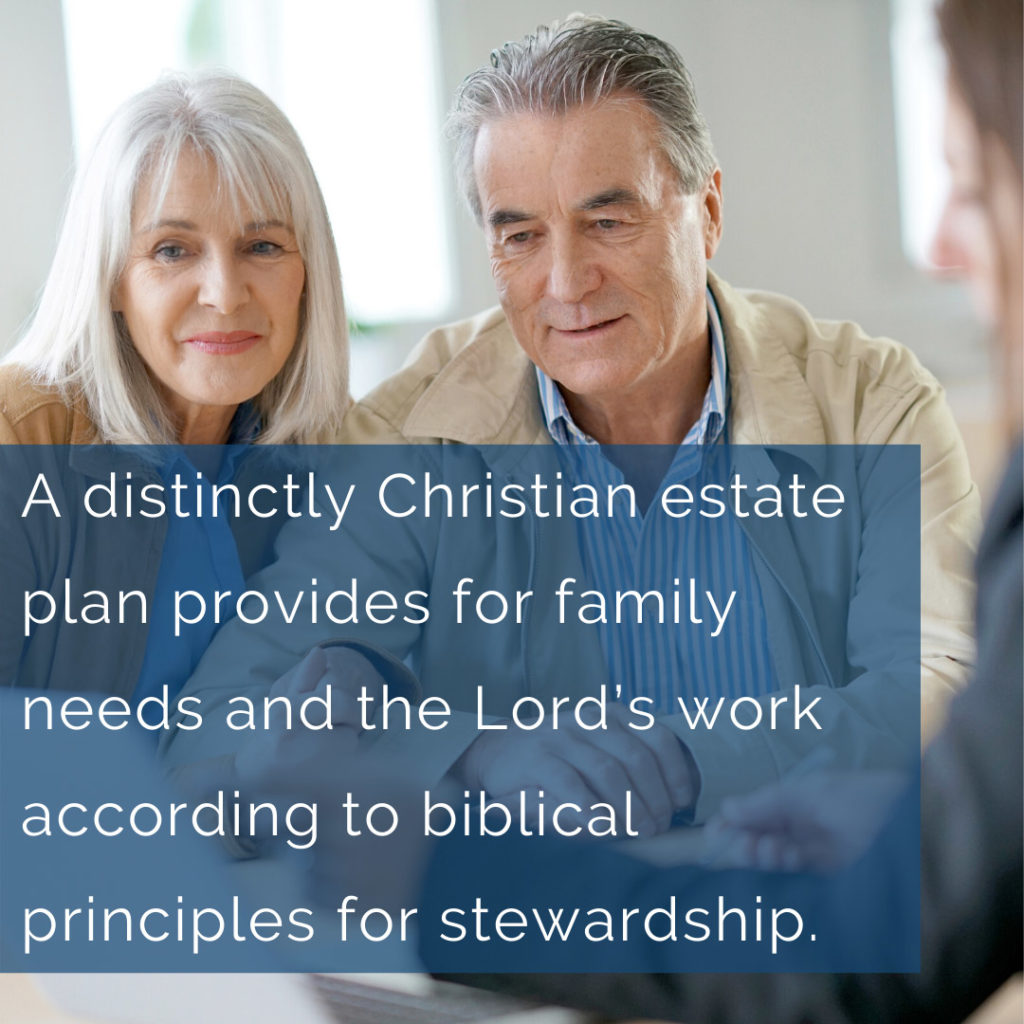In planning your last vacation, there were many necessary steps to prepare for a wonderful trip. A variety of little decisions were made to ensure that you would have a fun and safe experience. Where should we go? Where will we stay? How will we get there? What should we pack? Who will feed the dog while we are away? What shoes should I bring? None of these decisions were necessarily difficult, but the overall process required thought and prayer. When it was time for your vacation, the details were in order to ensure things would go smoothly.
For some reason, when we think about creating an estate plan, or a will, we often feel intimidated by the process. It seems cumbersome and too big to tackle, maybe even scary. Where do I begin? What is the process? I don’t even have an attorney. And by the way, I really don’t want to think about the end of my life—that just makes me uncomfortable. Because of our fear and not knowing how or where to begin, we often do nothing; an estimated 70 percent of Americans do not have an estate plan. We put it off for another day… way down the road. And sometimes that day never comes, leaving critically important decisions to someone else.
Of course, we want to be good stewards of all that God has given us. None of us desire for our assets to be tied up in probate or subject to unnecessary taxes, or for our investment accounts to cause conflicts between our children. When we die, we want our possessions to bless our family and the Lord’s work. That’s why it is important to create a plan.
What Is a Christian Estate Plan?

Benefits of a Christian Estate Plan
An estate plan preserves your legacy by formally recording your wishes and desires. Early planning also provides the peace of mind that comes with knowing you have created an estate plan that honors the Lord, your family, and the causes you care about.
Peace
A well-written estate plan assures you that your family is protected and provided for.
Provision
You will spend most of your lifetime gathering assets and making plans. Give your estate the attention that it deserves. With a solid plan, you will convey the property and assets you have acquired to loved ones, in the right way, at the right time, and at minimal cost.
Protection
Not only does a good plan provide for loved ones after your death, but it can also protect you during your senior years. It allows you to designate a specific person to manage your property. It can help doctors and other medical staff with important decisions while making certain you are receiving the best care possible.
Stewardship
For Christians, an estate plan is the capstone on a lifetime of stewardship. Knowing everything we own comes from the Lord, we have a responsibility to manage those resources even after our death. A Christian estate plan should be prayerfully designed with God’s Word in mind. Consider the following Scriptures:
1 Corinthians 4:2
God wants us to be good stewards.
1 Timothy 5:8
God wants us to provide for our loved ones.
2 Corinthians 9:6-7
God wants us to give cheerfully to the Lord’s work.
An estate plan increases your lifetime security, offers peace of mind, and achieves your goals for family and charity.
Answers to Common Estate Planning Questions
Where do I even begin?
Pray. Pray for God to guide your steps and invite Him into the process. Next, if this process is overwhelming to you, we recommend that you get some help from a Christian who is knowledgeable in this area. Another step might be to request a copy of our free Will Planning Guide at the bottom of this article. This tool has helped many people to get organized for the estate planning process. It is set up like a workbook and will help you get organized, which is half the battle when creating a will. Each page in the book allows you the opportunity to think about things you need to consider throughout this process. Once you fill out the workbook, the hardest part of planning is over!
How do I choose an executor?
An executor (in some states this person is called a “personal representative”) is key because the individual you designate will act on your behalf. They should be someone you trust to manage your household, your family relationships, and your medical care. They also need to have the time and ability to do what you are asking of them. Often the executor is a spouse, an adult child, or a trusted friend. If you don’t have anyone in your life who can carry out your expectations, you may decide to choose a local bank or attorney to act as your executor.
I am not wealthy; do I still need an estate plan?
Yes. Having an estate plan is not about how wealthy you are. It is about stewardship and your legacy. It is about making sure your wishes are implemented when you pass away. Where will your property and assets go? Who will get that special keepsake that you love so much? Who will make medical decisions for you if you are unable to do so? Especially as you enter the later part of your life, an estate plan offers tremendous peace of mind.

Can't I just trust my kids to figure this out when I am gone?
There are two reasons why this isn’t a responsible option. First, this is asking too much from them. When it is time for these decisions to be made, your children will be grieving and emotional. It would be burdensome for them to make hard decisions about money, property, medical care, and funerals at that time. Leaving a well-thought-out plan is a far more loving strategy. Second, while you may want to believe that your kids will get along well and agree on every detail of every decision, there are many heartbreaking stories of painful disagreements, and things can turn unpleasant quickly. Including the kids in conversations about your will planning process is wise—there should be no surprises when the plan is put into effect—but they should not bear responsibility for creating the plan.
I love my kids, but I’m not sure they should receive their full inheritance at once. What can I do?
Your estate plan can be crafted in a variety of ways to distribute your kids’ inheritance over time. Particularly if your estate is large or your children are young, spreading the distribution over time can be a wise option. An estate planning professional can help you structure the distribution based upon your family’s needs.
Can I change my estate plan if my situation changes?
Yes, of course! Remember, estate plans are designed to ensure that your wishes are carried out. Family dynamics change, and you might need to make revisions periodically. In fact, reviewing your estate plan on an annual basis is a sound practice.
You will never regret spending the time and effort it takes to create an estate plan, and you do not have to do it alone. The Planned Giving Team at Turning Point is available to assist you with anything you might need related to creating or updating your estate plan:
www.DavidJeremiahGift.org
Phone: 619-258-3600
